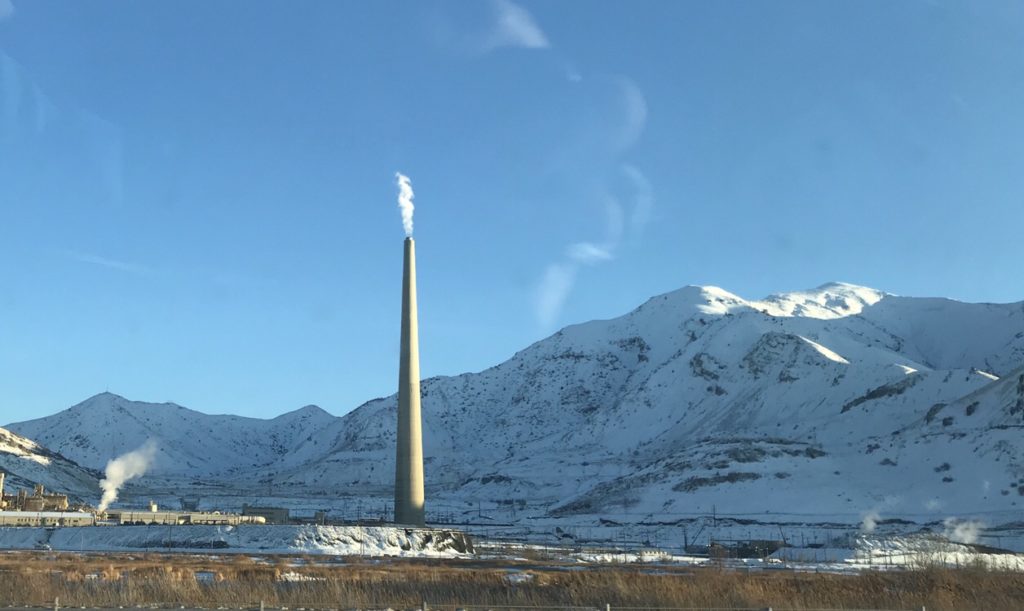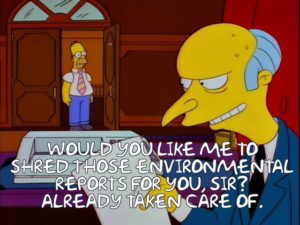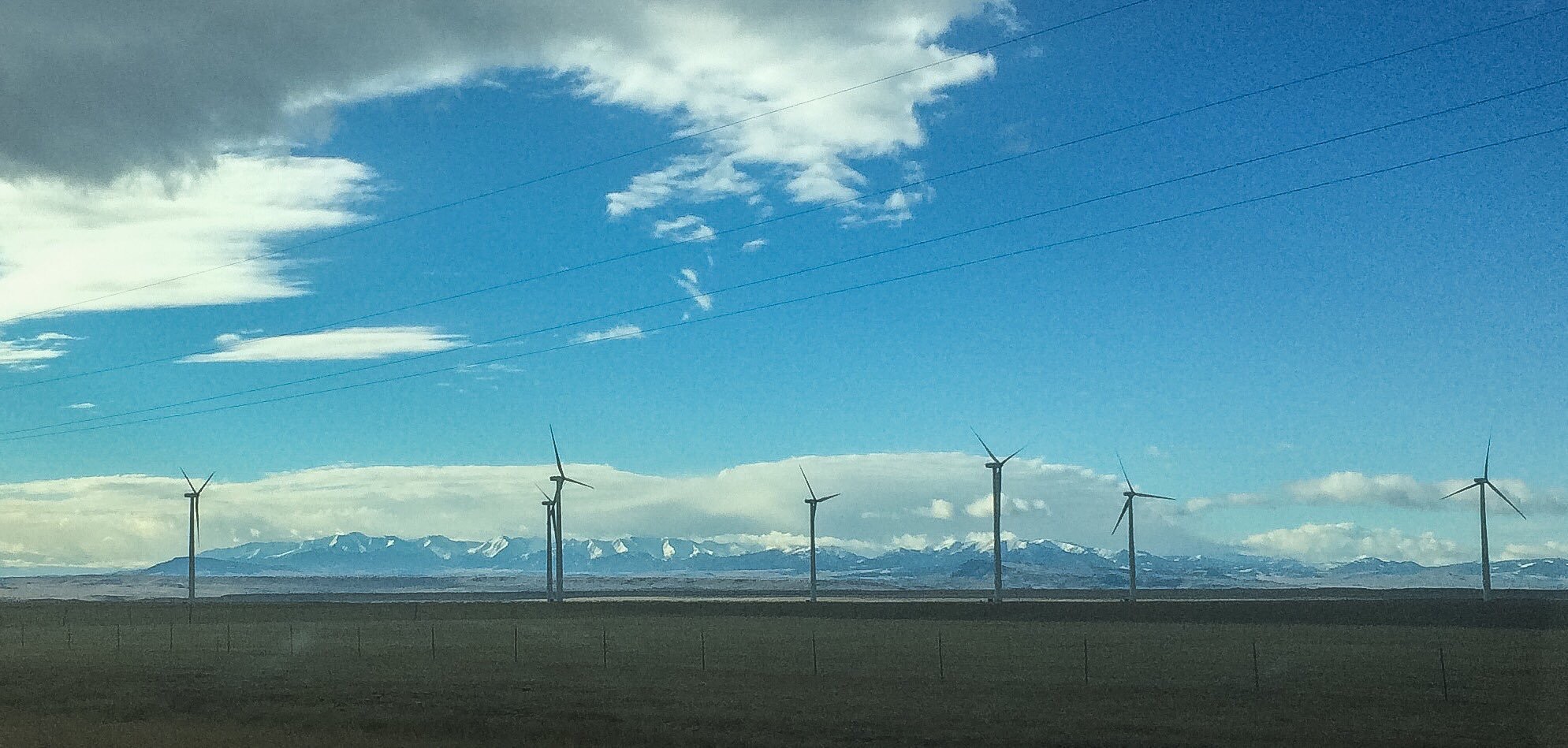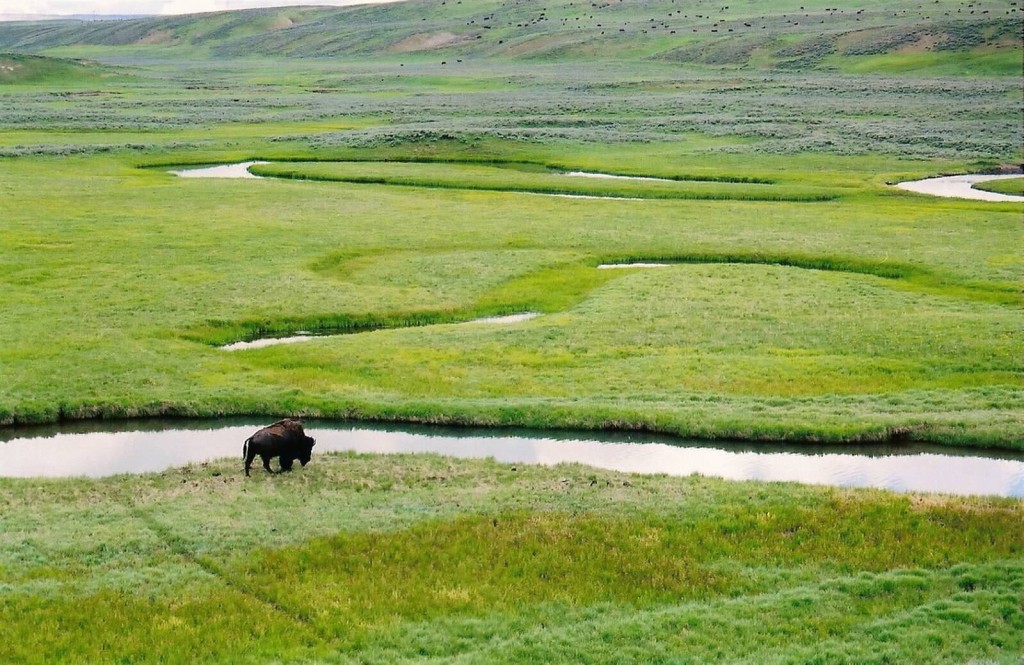The Kennecott Garfield Smelter smokestack is the most iconic smokestack of the west. That’s right, an iconic smokestack. It’s iconic because you can’t miss it. It’s huge! At 1,215 feet tall, it’s the tallest free-standing structure west of the Mississippi River and the fourth tallest smokestack in the world. Standing 18 miles west of Salt Lake City, it seems to be in the background wherever you around in town. It’s prominent when flying in and out and it begs for your attention when you drive west along I-80. The smokestack is part of Kennecott’s copper mining operation. The smelter processes the copper concentrate and acts as a waste heat to power generating plant. Continue reading
Category Archives: Blog
A Good Ski Day in a Bad Winter in Colorado
The above video is a fun, short edit of a good ski day at Winter Park & Mary Jane Ski Resort in Colorado. It’s great snow in an otherwise bad Colorado winter. Fortunately for us, we caught a day right after a good storm. Unfortunately for most of the season, it has been warm and dry. If you’re wondering, “Why does a good ski day video fit here?” A good ski day is the environmental professional lifestyle. Continue reading
Top 5 Environmentally Influential Places in the US
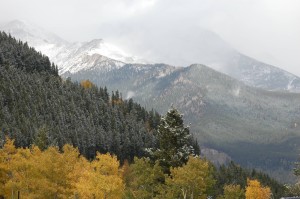 Teddy Roosevelt said, “I have always said I would not have been President had it not been for my experience in North Dakota.” I would not have my environmental perspective had it not been for these 5 places. As an environmental professional, I work to create a balance between a clean beautiful natural environment, human health, useable land, and productive facilities. Therefore, my Top 5 environmentally influential places are the following.
Teddy Roosevelt said, “I have always said I would not have been President had it not been for my experience in North Dakota.” I would not have my environmental perspective had it not been for these 5 places. As an environmental professional, I work to create a balance between a clean beautiful natural environment, human health, useable land, and productive facilities. Therefore, my Top 5 environmentally influential places are the following.
1. Southwestern and Central Pennsylvania, for its geology and geography. The old rocks, rolling hills and valleys, the landslides, the coal. It’s where I developed an appreciation for earth sciences. First, on my own spending time in those hills and valleys and second. Second, it’s where I studied geology at Penn State University.
My Path to the Certified Environmental, Safety and Health Trainer (CET)
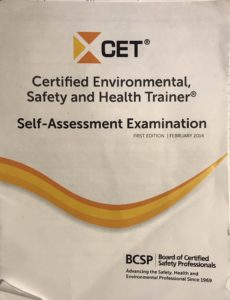
My well worn Self-Assessment Exam.
I’ve spent a chunk of my career teaching environmental, health and safety (EHS) courses. I’ve know about the Certified Environmental, Safety and Health Trainer (CET) for years, but I didn’t really need it for my job. Therefore, I never pursued it. I asked other EHS trainers I know and no one else had it or had even considered it. Was this process going to be worth the effort? Eventually my curiosity got the best of me. I didn’t have any first-hand accounts of the process. Therefore, I write this in hope that it helps you on your path to the CET.
Spoiler: I was approved, passed the test and am now a CET. Continue reading
The Dilemma of Environmental Twitter
 Environmental Twitter is the community on Twitter used to share an environmental message. This is everything from someone posting about their compost, a city promoting recycling, environmental activism, businesses promoting their projects, and the endless tweets about climate change. Twitter is a great tool for all of these. But if you spend more than a little time there, you’ll get the good and the bad and the ugly. That is the dilemma of Environmental Twitter. Continue reading
Environmental Twitter is the community on Twitter used to share an environmental message. This is everything from someone posting about their compost, a city promoting recycling, environmental activism, businesses promoting their projects, and the endless tweets about climate change. Twitter is a great tool for all of these. But if you spend more than a little time there, you’ll get the good and the bad and the ugly. That is the dilemma of Environmental Twitter. Continue reading
An Environmental Tale As Old As Time
Every Environmental Professional can tell some version of this story. It’s a microcosm of environmental protection history and the current Executive Branch’s take on a healthy environment. I can tell you several examples from my own career. The specifics aren’t necessary to understand the point. So let me tell you an environmental tale as old as time. Continue reading
A Brand Experiment
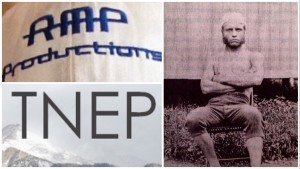 “It’s easy to be Puff, but it’s harder to be Sean.” That’s a great line in the song, I’m Coming Home by Sean “Diddy” Combs*. I can relate to that. I’ve created two self brands. One is this blog, The National Environmental Professional. It has become the brand I relate to my professional lifestyle. The other is RMP Productions, which is my more fun, media production brand. I’ve kept them separate since I created this blog. Now it’s time to consolidate them to one in a brand experiment. Puffy Daddy, Sean Jean, Puffy, P. Diddy, Diddy… If it can work for Sean, it can work for me. Continue reading
“It’s easy to be Puff, but it’s harder to be Sean.” That’s a great line in the song, I’m Coming Home by Sean “Diddy” Combs*. I can relate to that. I’ve created two self brands. One is this blog, The National Environmental Professional. It has become the brand I relate to my professional lifestyle. The other is RMP Productions, which is my more fun, media production brand. I’ve kept them separate since I created this blog. Now it’s time to consolidate them to one in a brand experiment. Puffy Daddy, Sean Jean, Puffy, P. Diddy, Diddy… If it can work for Sean, it can work for me. Continue reading
Is Science Gone From the Environmental Field?
A friend of mine, a hydrologist doing actual hydrology, simplified something I’ve been thinking about. He said when his work crosses over to the environmental field it’s like a vacation. There’s no charts or data to analyze. It’s simply check-the-box, compliance, and explaining. “There’s no real science anymore.” That’s the line that hit me. Although I refer to myself as an environmental scientist, I’d been thinking about how I do little actual science. Then he said it. “There’s no real science left in the environmental field.” Bam! He’s right, from a certain point of view. Is science gone from the environmental field? Continue reading
Top 5 Environmental Blog Posts of 2016
Thanks to everyone who came to the blog in 2016. There was an 80% increase in readers from 2015. The blog continues to grow! Here are my Top 5 environmental blog posts in 3 categories: my favorite posts of 2016, most read posts of 2016, and my favorite early blog posts. I’d recommend checking out the lists if you came here for something other than what’s listed. If you enjoyed a post or one listed below, share it and spread the positive environmental messages.
My top 5 favorite posts of 2016
2016 Gifts: Protect Our Winters & The Alliance for Sustainable Colorado
One of the ways I’ve chosen to become more involved in the environmental community is to make regular donations to environmental organizations or causes. I’ve donated before, but this makes it official and public. It’s not only coming from me, it’s coming from this blog as an official endorsement. I’ve chosen 2 organizations for The National Environmental Professional 2016 gift – Protect Our Winters and The Alliance for Sustainable Colorado.
Publicizing the donation is an effort to extend the reach of my gift by promoting these organizations. It might introduce you to them. It may inspire you to give or to get involved. Or it may inspire you to find a similar cause that is close to where your live or within your work/life community. We need as many positive stories about the environmental community as possible. Continue reading

